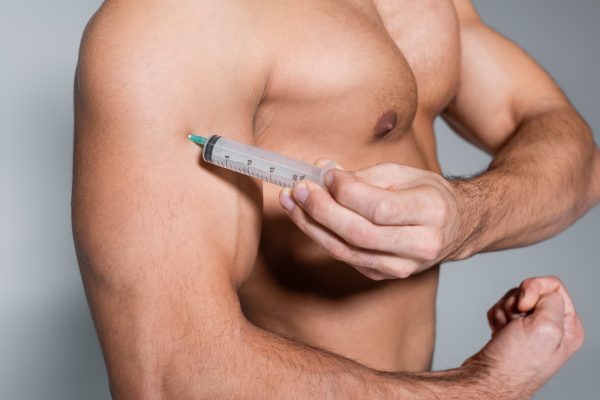The Science of Testosterone: What Every Man Should Know
The Science of Testosterone: What Every Man Should Know
Testosterone is often called the “male hormone,” but its role extends far beyond fueling masculinity. This powerful hormone influences energy levels, muscle strength, bone density, mental health, and sexual performance. Whether you’re in your 20s, 50s, or beyond, understanding testosterone and its effects on the male body is key to maintaining vitality and well-being.
At Florida Men’s Health, we specialize in helping men optimize their testosterone levels and improve their overall health. This guide explores everything you need to know about testosterone, its importance, and what to do if your levels drop.
What Is Testosterone?
Testosterone is an androgen hormone primarily produced in the testes and, to a lesser extent, the adrenal glands. It plays a critical role in male development and health. Testosterone begins rising during puberty, peaks in early adulthood, and gradually declines with age.
Key Functions of Testosterone:
- Physical Development: Responsible for male traits such as deep voice, facial hair, and increased muscle mass.
- Sexual Health: Drives libido and sperm production while supporting erectile function.
- Mood Regulation: Impacts emotional stability, confidence, and mental clarity.
- Metabolism: Regulates fat distribution, muscle growth, and energy levels.
The normal range for testosterone levels is between 300 and 1,000 nanograms per deciliter (ng/dL). Levels below this range can lead to a condition called Low T or hypogonadism.
How Testosterone Affects the Male Body
1. Physical Health
Testosterone is integral to maintaining muscle mass, bone density, and overall physical performance. Low T can cause:
- Fatigue: A significant drop in energy levels.
- Muscle Weakness: Difficulty building or maintaining muscle mass.
- Weight Gain: Increased body fat, particularly around the abdomen.
2. Mental Health
Low T is often linked to emotional and cognitive issues, such as:
- Mood Swings: Irritability and increased stress.
- Depression: Persistent feelings of sadness or hopelessness.
- Brain Fog: Difficulty concentrating and reduced mental clarity.
3. Sexual Health
Testosterone plays a crucial role in maintaining libido and supporting erectile function. Men with Low T may experience:
- Decreased interest in sexual activity.
- Difficulty achieving or maintaining erections.
- Lower satisfaction with sexual performance.
Why Do Testosterone Levels Decline?
1. Aging
Starting in their 30s, men typically lose about 1% of their testosterone levels annually. This natural decline can lead to noticeable symptoms over time.
2. Lifestyle Factors
Unhealthy habits such as poor diet, lack of exercise, and substance abuse can accelerate testosterone decline.
3. Chronic Conditions
Diseases such as obesity, diabetes, and thyroid disorders can interfere with hormone production.
4. Stress and Sleep Deprivation
Chronic stress elevates cortisol levels, which suppress testosterone production. Similarly, poor sleep disrupts the body’s natural hormone cycle.
Recognizing Symptoms of Low T
Low T can manifest in several ways, including:
- Physical Symptoms: Fatigue, weight gain, and reduced muscle mass.
- Sexual Symptoms: Low libido, erectile dysfunction, and decreased performance.
- Emotional Symptoms: Depression, irritability, and low confidence.
If you experience any of these symptoms, it’s essential to seek professional evaluation and support.
Diagnosing Low T
Diagnosing Low T begins with a thorough evaluation. At Florida Men’s Health, we follow a comprehensive approach:
- Blood Tests: Measuring testosterone levels, typically in the morning when levels are highest.
- Symptom Analysis: Reviewing physical, sexual, and emotional health.
- Lifestyle Review: Identifying habits or conditions that may contribute to hormonal imbalances.
How to Improve Testosterone Levels
1. Natural Approaches
Adopting healthy lifestyle habits can help boost testosterone production naturally:
- Exercise Regularly: Focus on strength training and high-intensity workouts.
- Improve Your Diet: Incorporate lean proteins, healthy fats, and whole grains while avoiding processed foods.
- Reduce Stress: Practice mindfulness, meditation, or yoga to lower cortisol levels.
- Prioritize Sleep: Aim for 7–9 hours of quality sleep per night.
2. Testosterone Replacement Therapy (TRT)
For men with clinically low testosterone levels, TRT is a safe and effective solution. Options include:
- Injections: Administered weekly or biweekly for consistent results.
- Topical Gels or Patches: Easy-to-use applications absorbed through the skin.
- Pellet Implants: Provide a steady release of testosterone over several months.
3. Address Underlying Conditions
Managing chronic conditions like obesity or diabetes can improve overall hormonal health and testosterone levels.
Why Choose Florida Men’s Health?
At Florida Men’s Health, we provide expert care tailored to each patient’s needs. Here’s what sets us apart:
- Comprehensive Testing: We identify the root causes of your symptoms.
- Personalized Treatment Plans: Tailored to your lifestyle and health goals.
- Advanced Solutions: Access to the latest testosterone replacement therapies.
Our team is committed to helping you regain energy, confidence, and vitality.







